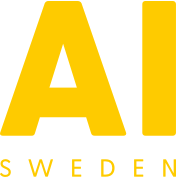AI Sweden launches AI Ethics Lab
AI Sweden is launching the Swedish AI Ethics Lab with the aim of helping to move AI ethics in Sweden from abstract guidelines to practical application.

Clinical medicine has historically overlooked gender, racial and geographic diversity. This means that the data that is currently used for training algorithms used for medical diagnosis risks being prejudiced, and that the AI solutions even reinforce this bias over time. For example, skin cancer-detecting algorithms risk being less accurate when used on dark-skinned patients, since they are trained on fair-skinned images.
In an attempt to address ethical aspects such as this, a number of checklists and guidelines for trustworthy and ethical AI have been produced by both public decision-making bodies, industry and academic institutions. However, implementing these guidelines and putting them into practice often proves to be a challenge. AI Sweden is therefore launching the Swedish AI Ethics Lab with the aim to help move AI ethics in Sweden from abstract guidelines to practical application.
The members that have been appointed as part of this group are as follows
Anna Nordell Westling, Sana Labs
Daniel Akenine, Microsoft
Evelina Anttila, Peltarion
Helena Thybell, Save the Children
Katarina Gidlund, Mid Sweden University
Louise Callenberg, PublicInsight
Magnus Boman, KTH Royal Institute of Technology and Karolinska Institutet
Martin Engström, Region Halland
Sara Övreby, Google
Stefan Larsson, Lund University
Theodor Andersson, Agency for Digital Government
“AI ethics is gaining increasing attention, and for good reasons. At AI Sweden we already address many issues, such as privacy and fairness, in a number of our applied AI projects. But we see the need for an even more directed effort, and our partners echo this need.
I am therefore very happy to be joined by a very competent group of individuals in discussing ethics in AI development. Their diverse experiences range from global corporations and startups to the public healthcare sector and non-profit childrens’ rights. Bringing together AI expertise with sociological, legal and theological perspectives, combined with knowledge from both the public and private sector, makes for a fresh take on the discussions”, says Daniel Gillblad, AI Sweden
The purpose of the Swedish AI Ethics Lab is to provide guidance and support in implementing ethics in AI development, and will be piloted during the course of 2021. Over time, a growing library of AI ethics use cases will provide private businesses, public organizations and policy makers in Sweden with a tangible go-to source for how to approach - or not approach - their own projects.
For questions, please contact Karin Vajta Engström, project manager for the AI Ethics Lab, at karin.vajta@ai.se

